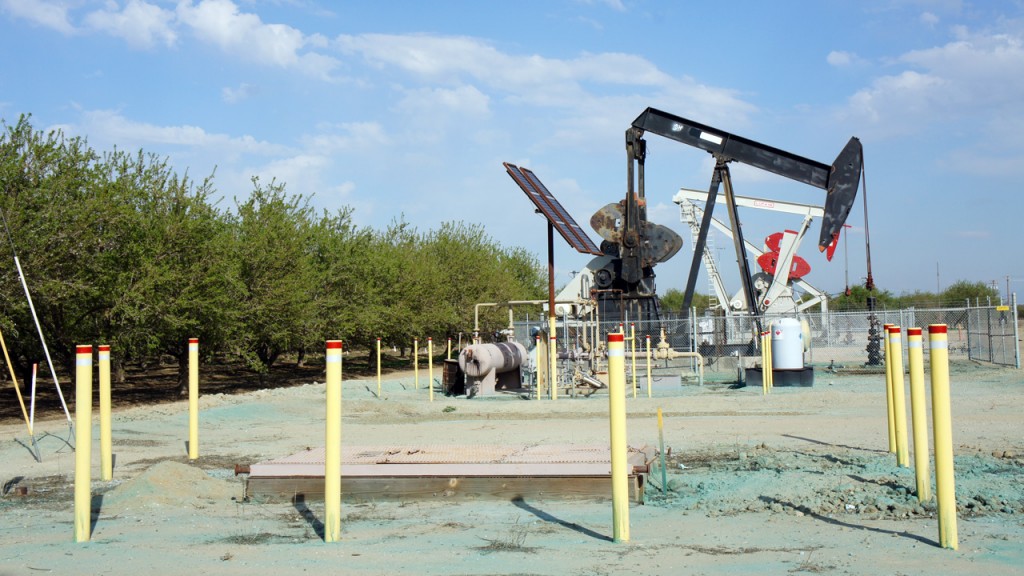“To me, it’s a logical matching up of a couple deadlines,” says Jason Marshall of the Department of Conservation.
“If this hadn’t been pushed back, my department would have been getting applications for well stimulation,” he says. “And the operator would have gone to water board to get the plan approved and the water board would have said ‘You need to wait six months, because we don’t have criteria developed yet.’”
Under temporary fracking regulations now in place, oil operators must submit groundwater monitoring plans, but currently they’re approved by oil and gas regulators under a set of more minimal requirements.
“There is groundwater monitoring going on right now, but is it to the full degree that it will be in July (2015)? Probably not,” Marshall says.
Environmental groups have mixed feelings about the timeline change.
“There was 50 years of non-regulation, and it’s an extra six months,” says Bill Allayaud of the Environmental Working Group. “It’s not the most desirable thing, but we are getting relatively good public disclosure about fracking for the first time.”
Hollin Kretzmann, an attorney with the Center for Biological Diversity, says no regulation can ensure fracking is safe and he’d prefer to see it halted altogether in California. Nonetheless, he says the final regulations do include important rules that will now, unfortunately, also be delayed. Those include a requirement that oil operators monitor seismic activity during fracking and must stop operations if there’s an earthquake registering 2.0 or greater.
Kretzmann says it’s unusual for temporary regulations to be in place for so long. “It’s confounding that their so-called emergency regulations will now be in effect for 18 months,” he says. “Under California law, the limit for emergency regulations is 12 months, so they had to make a statutory exemption.”
Getting Rid of the “Magic Wand”
The bill that approved the delay—what lawmakers call a trailer bill—made another change that some environmentalists are cheering.
Under SB 4, the fracking regulation bill, oil and gas regulators had so-called “magic wand” power to decide on the level of environmental review a fracking operation must undergo. Several environmental groups pulled their support for the bill when that provision was added.
“The (oil and gas) supervisor would have been able to waive environmental review based on prior environmental reviews,” Allayaud says.
California oil and gas regulators are currently reviewing the potential impacts of fracking statewide in an environmental impact report. Environmental groups expressed concerned that regulators would cite this broad statewide review as an adequate basis for granting fracking permits, as opposed to requiring a more site-specific review.
Now, under the new provision approved in late June, the level of environmental review will be decided on a case-by-case basis as permit requests come in, says the Department of Conservation’s Jason Marshall. “It’s going to depend on where in the state you’re talking about,” he says. “We have wildly differing amounts of information about the impacts.”
Other agencies will also be able to weigh in on environmental impacts, under the new language. “The change makes clear that there is still opportunity for other agencies or local governments to conduct their own environmental review or impose mitigation measures,” says Kretzmann.
Environmental groups say they’ll be watching closely. “There are still going to be some questions down the road,” Allayaud says.
